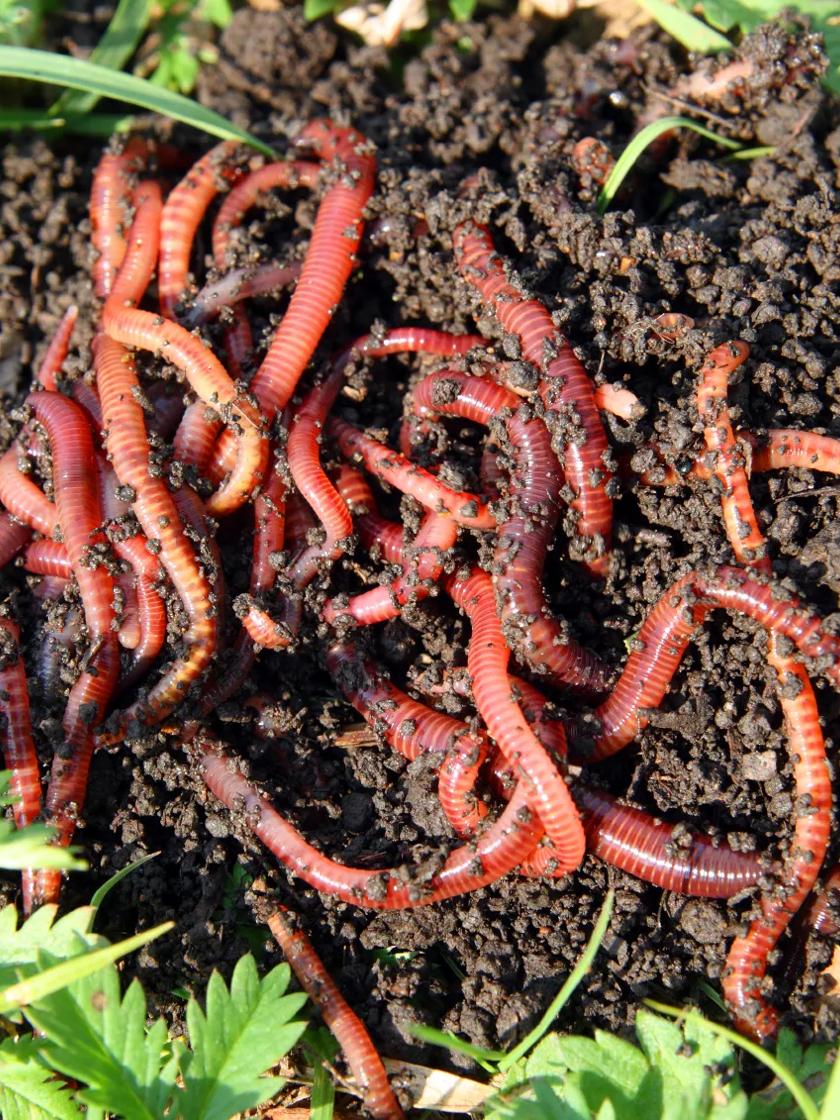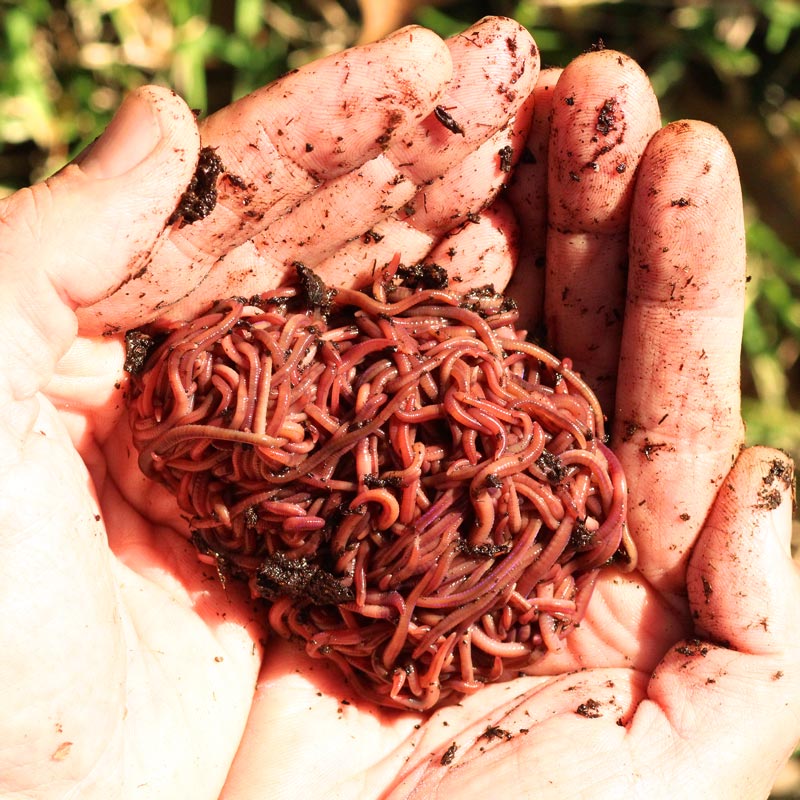Red Wiggler Worms - Perfect for Vermicomposting and Dirt Enrichment
Red Wiggler Worms - Perfect for Vermicomposting and Dirt Enrichment
Blog Article
Red Wiggler Worms Demystified: Opening the Tricks of Vermiculture for Greener Living and Nutrient-Rich Soil
In the realm of lasting methods for enhancing soil top quality and advertising eco-conscious living, red wiggler worms play a critical yet frequently overlooked duty. These simple creatures have the exceptional ability to transform natural waste into nutrient-rich spreadings that work as a powerful natural plant food. By diving into the world of vermiculture, one can reveal a plethora of advantages that extend much beyond traditional composting approaches. Comprehending the complexities of looking after these worms, maximizing their atmosphere, and harnessing their castings can lead to a greener way of life and healthier soil for plants to thrive.
The Function of Red Wiggler Worms
Red Wiggler worms play an important role in composting systems by effectively damaging down raw material into nutrient-rich spreadings. These voracious eaters consume a range of natural products, such as kitchen scraps, backyard waste, and paper products. As they feed, the worms' digestion procedures break down the raw material right into a fine, dark, and nutrient-dense material called worm spreadings or vermicompost.
The castings produced by Red Wiggler worms are extremely advantageous for dirt health and wellness and plant growth. They are abundant in important nutrients like phosphorus, nitrogen, and potassium, which are essential for supporting healthy plant development. Additionally, worm castings include useful microbes and enzymes that help improve soil structure, rise water retention, and boost nutrient uptake by plants.
Benefits of Vermicomposting

It improves dirt structure, enhances dirt aeration, and enhances dirt dampness retention. Vermicompost also enhances the dirt with essential nutrients like potassium, phosphorus, and nitrogen, promoting plant growth and general dirt fertility.
Additionally, vermicomposting supports sustainable gardening methods by giving a chemical-free and natural choice to synthetic plant foods. Red Wiggler Worms. This eco-friendly technique not just improves the dirt however also aids minimize reliance on hazardous chemicals, advertising a greener and much more sustainable method of gardening
Setting Up a Worm Bin
When establishing a worm bin for vermicomposting, proper setup is essential to make sure the success of the composting procedure. The primary step in establishing a worm container is picking an ideal container. This can be a plastic container or wooden box that offers sufficient area for the worms to walk around and has proper drainage openings to avoid waterlogging. Next off, a bed linens product such as shredded paper, cardboard, or coconut coir must be contributed to the bin. This bedding provides a comfy environment for the worms and aids preserve moisture degrees.
After adding the bedding, introduce the red wiggler worms to the container. It is suggested to begin with a tiny number of worms and slowly increase as they multiply. The worms should after that be supplied with food scraps such as vegetables and fruit peels, coffee premises, and eggshells. It is important to avoid adding meat, milk, oily, or salty foods to protect against drawing in pests and developing unpleasant odors.
Frequently check the wetness degrees and temperature in the worm container to make certain ideal conditions for the worms. With appropriate arrangement and maintenance, the worm container will effectively transform organic waste right into nutrient-rich compost for your plants and garden.
Collecting Worm Castings
To effectively accumulate nutrient-rich worm castings from your vermicomposting system, an organized harvesting method is crucial. When it comes time to gather the worm spreadings, there are a couple of essential actions to comply with to guarantee an effective procedure. Quit including fresh food scraps to one side of the worm container for a couple of weeks prior to collecting. This encourages the worms to migrate to the side with fresh bed linen and food, making it less complicated to dig the castings from the opposite side.

Troubleshooting Common Issues
Determining and addressing common difficulties that may occur during the vermicomposting procedure is crucial for keeping a healthy and balanced and effective worm bin. One usual concern that vermicomposters experience is overfeeding. Including excess food scraps can bring about an accumulation of wetness and acidity in the worm container, possibly harming the worms. To stop this, feed the worms in small amounts, making sure that the food scraps are appropriately damaged down before including a lot more. One more issue is undesirable odors rising from the worm bin. Foul scents show anaerobic conditions, generally created by overwatering or insufficient ventilation. To treat this, change the moisture degrees by adding completely dry bed linens materials like shredded paper or cardboard and boost aeration by transforming the bedding routinely.
In addition, if the worm population is declining or the worms appear undesirable, maybe click for info because of ecological stress factors such as extreme temperature levels or pH degrees. Checking these elements and making essential adjustments is necessary for the well-being of the worms. By fixing these typical concerns quickly, vermicomposters can make certain a smooth and successful vermicomposting procedure while keeping a flourishing worm populace.

Conclusion
To conclude, red wiggler worms play an important function in vermiculture by breaking down raw material right into nutrient-rich soil. The web link benefits of vermiculture consist of greener living and boosted dirt high quality. Establishing a worm bin is important for successful vermiculture, and harvesting worm spreadings gives useful compost for gardening. By understanding and repairing common problems, people can open the tricks of vermiculture for sustainable living and healthier dirt.
As they feed, the worms' gastrointestinal processes damage down the natural issue into a penalty, dark, and nutrient-dense material understood as worm castings or vermicompost.
The spreadings generated by Red Wiggler worms are very useful for dirt health and wellness and plant development. Adding excess food scraps can lead to a build-up of wetness and level of acidity in the worm bin, potentially damaging the worms.Additionally, if the worm population is declining or the worms show up important link harmful, it can be due to environmental stress factors such as severe temperatures or pH levels. Establishing up a worm container is vital for effective vermiculture, and harvesting worm castings provides valuable garden compost for horticulture.
Report this page